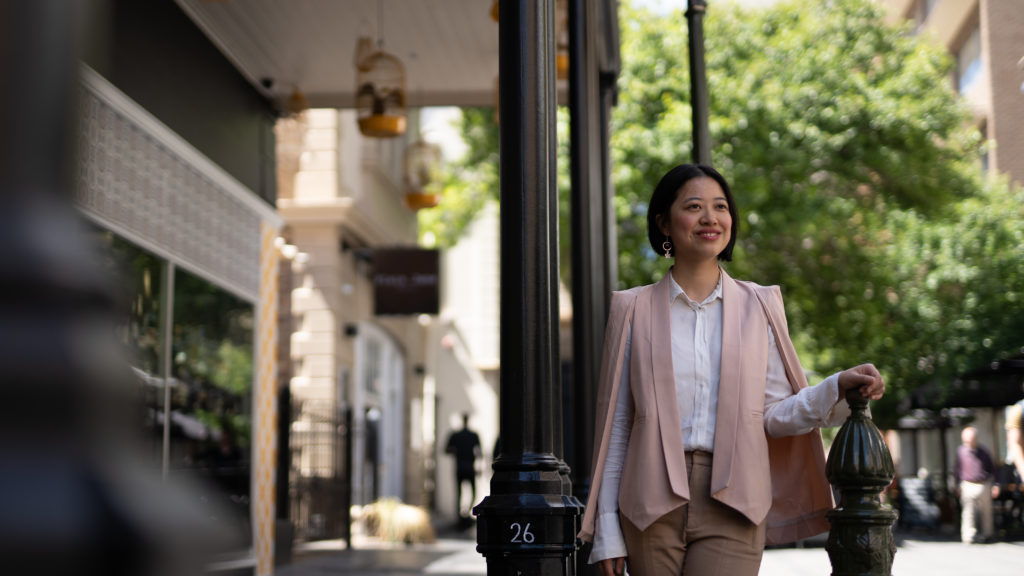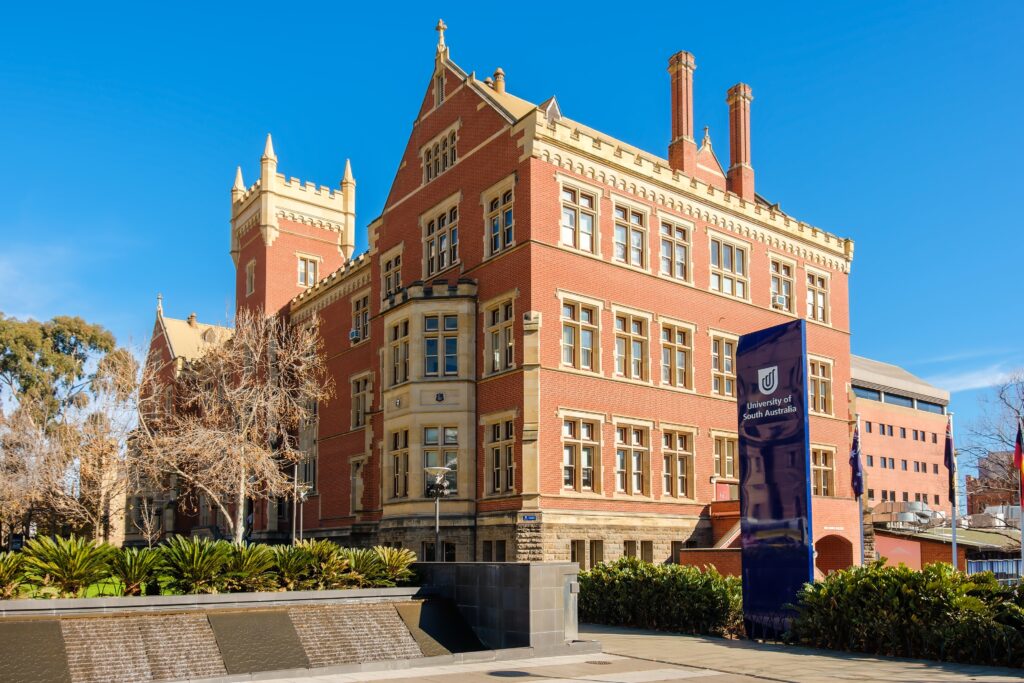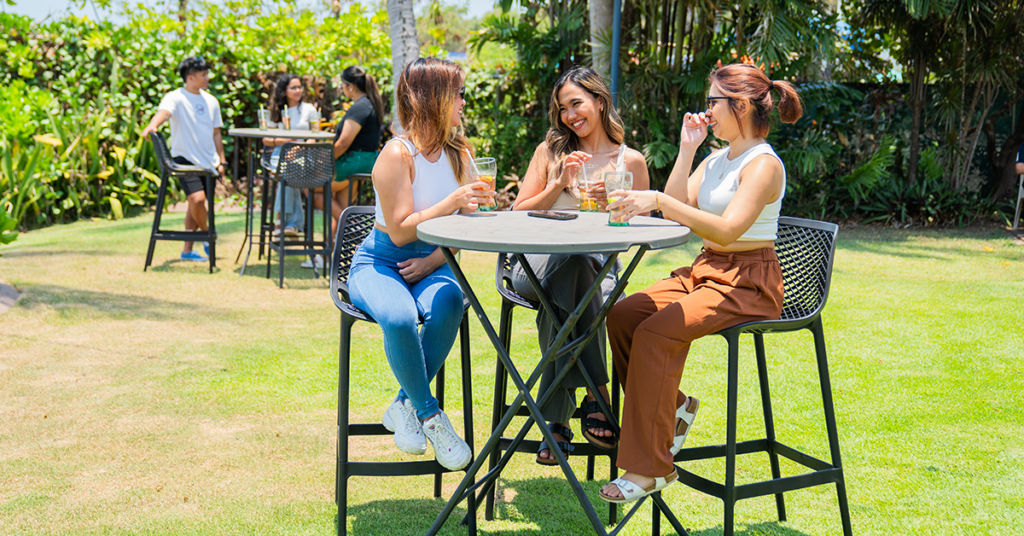For Qian, being an international student isn’t simply about studying abroad; it’s about absorbing as much of the culture, language, knowledge and experience as you can, and sharing your story to inspire new generations of multiculturally minded people. It’s because of this that she likes to think of herself as a ‘cultural bridge’, connecting her home, China, with Australia. We sat down with Qian in her adopted home of Adelaide to learn more about her experience.
THE MOVE TO AUSTRALIA
It took Qian a while to settle on Adelaide as her destination of choice.
“Initially, I wanted to move to the UK, but their Masters courses are only a year long,” she says. “I wanted to know more people and their cultures and felt that one year was not enough. Then, I thought of Canada, but it’s too cold!”
Finally, a familial connection convinced Qian’s parents that Australia would be a perfect choice. She had a cousin living in Sydney, and initially the thought was that she would live with them. However, Qian sought more independence.
“I wanted to prove myself and go to a different city. I did the research and found that South Australia is the Festival State – I love arts, culture and festivals, so I thought that would be fun.”
Despite studying Public Administration as an undergraduate, Qian found herself more passionate about her extracurriculars, including radio presenting and public speaking. So, in 2013, she moved to Adelaide to begin her Master of Social Work at the University of South Australia – a course that would allow her to better interact and engage with people.
SETTLING IN
Like many international students who speak English as a second language, Qian found Australia’s unique language customs a bit confusing at first. “One thing I struggled with when I first moved here was the English barrier,” she says. “I found there were so many slang words I didn’t understand.”
Qian also noticed that when Australians speak, they finish their sentences with upward inflection – this means that statements end up sounding like questions. Because of Qian’s language troubles, she relied on communication with family and friends in China. But, she also knew that she would have to start gaining confidence in her English somehow.
“I knew that I was in Australia to study, to learn, to grow,” she says. “I wanted to make the most of my experience here, so I started being very proactive [and] talking to people, even while I was just waiting for the bus. I would initiate conversation and ask them about their heritage, because I’m interested in different cultures.”
With these short, everyday interactions, Qian felt her English language skills improved, and she never found anyone who didn’t want to chat with her. This friendliness is one of her favourite things about living in Adelaide, but the list doesn’t end there.
“I love the multiculturalism – you feel like you’re travelling to many different countries at the same time. There are also so many places to explore: the city, nature, the beach… and then, there are the festivals!”
After six years living in Adelaide, Qian is now a master at understanding Australian slang. Her favourite terms?
“’No worries’. I also like ‘comfy’ and ‘sunnies’ – they’re so much easier to say!”
RADIO DAYS
While studying, and since graduating and getting her permanent residency to stay in Australia, Qian has been dedicated to volunteer work. She’s managed to seek out some pretty unique experiences, including being an OzAsia Festival ambassador, working at the Royal Adelaide Show, mentoring through the University of South Australia’s e-pal program and tutoring at the University of Adelaide’s Confucius Institute.
“Volunteer work is very important for international students. [It’s beneficial] for making friends and to improve your English, and it’s a good way to get to know local culture, which is very important to your future career.”
But, her favourite volunteer position thus far has been with Radio Adelaide, which has given her an opportunity to be social and find her voice as a radio journalist.
“The program is called Songcatcher. We interview different songwriters every week and talk about their music stories, background, and inspirations. It’s kind of an educational program for me, learning about new music and genres.”
With a supportive team on her side, Qian overcame her initial fears about asking the ‘wrong’ questions. Instead, she found that her international background and unfamiliarity with Western music actually meant that her interview questions were unique and thought-provoking.
“The show is about having fun,” she says. “I have more courage to speak up now.”
Being in this musical environment has also inspired Qian to pursue songwriting. “It’s one of my dreams to write my own song and to sing it.”
LOOKING TO THE FUTURE
Currently, Qian is working full-time at Kaplan Business School in Adelaide as a Student Experience Officer and assists in their social media.
“I get to work with international students, which I enjoy, because I really know what they’re going through, their issues and how I can help them. I can share my experiences and tips.”
As for the future, Qian is certain she wants to see more of the world, meet new people and share their stories. But, she doesn’t have any set plans.
“I like uncertainty because it makes life fun and exciting,” she says. “I don’t want to worry about the future – I just want to focus on what I enjoy doing.”
ADVICE FOR STUDENTS
For international students considering Australia for their studies, Qian can’t recommend Adelaide enough.
“Adelaide has so many advantages for students. The city is not that big, so everywhere is very liveable, and it’s easy to get anywhere. The people here are welcoming and approachable, and the cost of living is very low.”
As it is now part of her job, Qian has perfected her advice for students. For students coming from abroad, she has two very important tips:
“First, improve your English as much as you can before coming here – it will help you get more involved and make the most of your time overseas.
“Second, get out of your comfort zone. I always encourage students to mingle with people from different cultures. You become more respectful of other people and their differences – it helps change the way you see the world.”





